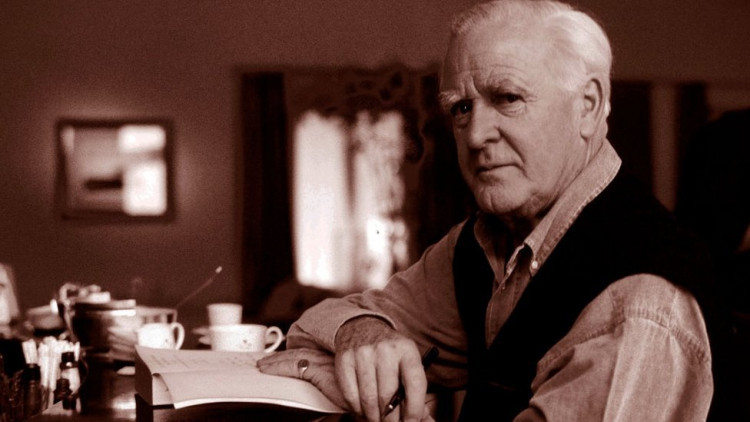British intelligence officer turned author John le Carré, known for spy thrillers including "Tinker, Tailor, Soldier, Spy" and "The Spy Who Came in From the Cold," died Sunday after a short bout of pneumonia, according to his agent.
"We have lost a great figure of English literature, a man of great wit, kindness, humor and intelligence," literary agent Jonny Geller, who represented the author for more than 15 years, said.
Graham Greene called "The Spy Who Came in From the Cold," featuring the plump, ill-dressed George Smiley, the greatest spy story he had ever read.
Le Carré - born David John Moore Cornwell in Poole, Dorset - wrote 25 novels, as well as several screenplays, nonfiction books and short stories - most set during the Cold War between 1945 and 1989.
Inspired by his time in the British Security Service, his writing portrayed the unglamorous reality of espionage with its backroom dealings and subtle maneuverings.
Le Carré studied German at the University of Berne between 1947 and 1948. A young Englishman from the right social background, approaching fluency in German, inevitably came to the attention of the intelligence services, The Guardian said its obituary Monday.
So, le Carré learned about this topic firsthand - he had joined the UK domestic service MI5 - also known as the Security Service, the U.K's domestic counterintelligence and security agency - in 1958 before moving on to foreign intelligence work with MI6 in 1960.
He was first stationed at the British embassy in Bonn, Switzerland, where he worked in the records department and published his first novel in 1961. But le Carré's future as a spy was cut short three years later when Soviet double agent Kim Philby leaked his identity.
This experience later appeared as a storyline in his novel "Tinker, Tailor, Soldier, Spy" featuring le Carré's most famous character - the bespectacled Smiley.
Smiley appeared in nine books and his portrayal by Gary Oldman in a 2012 movie adaptation earned the actor an Oscar nomination.
"Smiley has a counterpart in the Russian master spy Karla, his opposite in ideology but equal in almost all else, an opponent he studies as intimately as a lover studies his beloved. The end of 'Smiley's People,' the last in a series known as the Karla Trilogy, brings them together in a stunning denouement that is as much about human frailty and the deep loss that comes with winning as it is about anything, The New York Times' Sarah Lyall wrote in an obituary Monday.
Several of the author's other works, including "The Constant Gardener" and "The Night Manager," have also been adapted for the screen.
Le Carré was hailed as a "literary giant and a humanitarian spirit" by American writer Stephen King on Twitter while historian Simon Sebag Montefiore called him a "titan of English literature."






